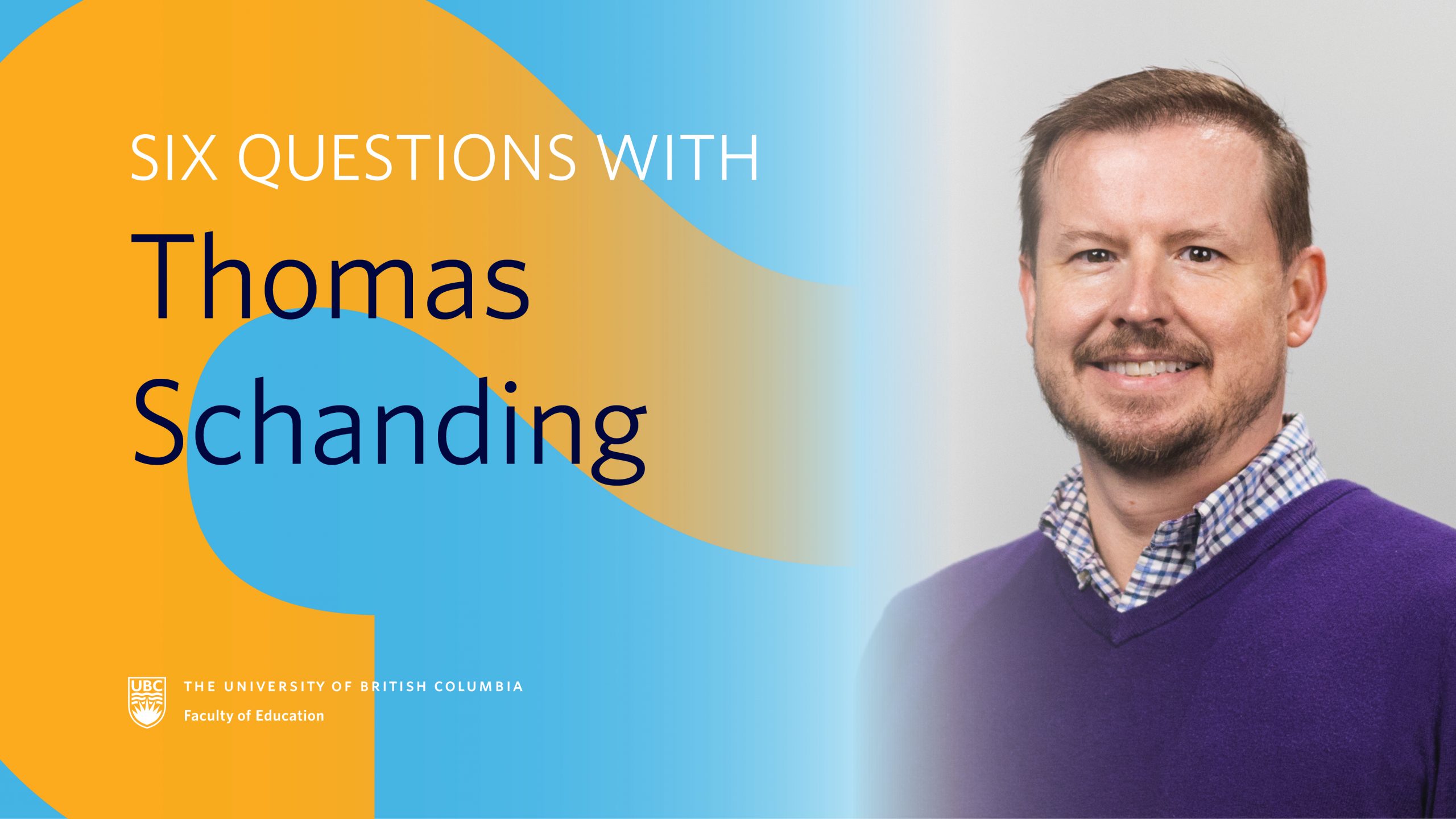May 24, 2022

Six Questions with Dr. Thomas Schanding
Dr. Thomas Schanding is an Associate Professor in the Faculty of Education and Area Coordinator for the School and Applied Child Psychology (SACP) Program, which prepares graduate students to become practicing psychologists. Dr. Schanding’s research program focuses on the social-emotional, mental and behavioural health of students, as well as the social experiences and school functioning of 2SLGBTQIA+ youth.
What was the inspiration for your program of research and what is the focus?
Much of my research focuses on universal screening of school age students. Initially, I was drawn to academic screening, but I have now become much more involved in behavioural and mental health screenings. When I was a practicing school psychologist, my main role was working with youth with significant behavioural and mental health challenges. Ultimately, I realized that Social and Emotional Learning (SEL) was the most effective way in which we could build upon the resilience and positive assets of youth. Now, my focus is on how we can screen youth for SEL and mental health issues to ensure we provide excellent interventions that create a foundation for strong academic learning, and healthy social and emotional development.
What kind of impact on knowledge or on society would you like your work to have?
Ultimately, I want families and schools to have the proper tools to know how a child is doing, and what can be done if they notice any problems. Preventing or mitigating behavioural and mental health difficulties and ensuring proper education and treatment should be available to all children, and a part of a robust public education system. My hope is that we can build a strong screening system of behavioural and mental health for children in schools that would link easily to medical and mental health programs external to schools.
Whose work has been particularly important in your career to date, and why?
Many people have influenced how my program has evolved, including the Dual-Factor model of mental health proposed by Drs. Peter Greenspoon and Donald Saklofske (2001), then further expanded up by Drs. Shannon Suldo and Emily Shaffer (2008). This model seeks to not only identify the risks for psychopathology, but also to consider the subjective well-being of youth and what strengths they have—something we lose if we only focus on a deficit. I also admire and follow the work of Drs. Erin Dowdy, Katie Ecklund, Stephen Kilgus and Tyler Renshaw in conceptualizing and addressing behavioural and mental health and wellness in schools. I think these researchers help push us to consider how we best identify and serve our children and families.
What advice would you give to graduate students doing research in this area?
There’s still a lot to learn about how we can quickly and effectively screen children and identify which services are best suited to meet their needs. Additionally, there is a large amount of work required to understand how to do this in a culturally responsive manner.
What would you like your next big research project to be about?
There are many screeners out there that measure different facets—mental health, social and emotional learning skills, adverse childhood events and more. I would like to do a head-to-head comparison of various screeners in seeing what type of screener best predicts certain outcomes for youth.
If you could have a super power, what would it be?
Since I was young, I have always wished I could fly like Superman.
This interview has been edited for clarity.